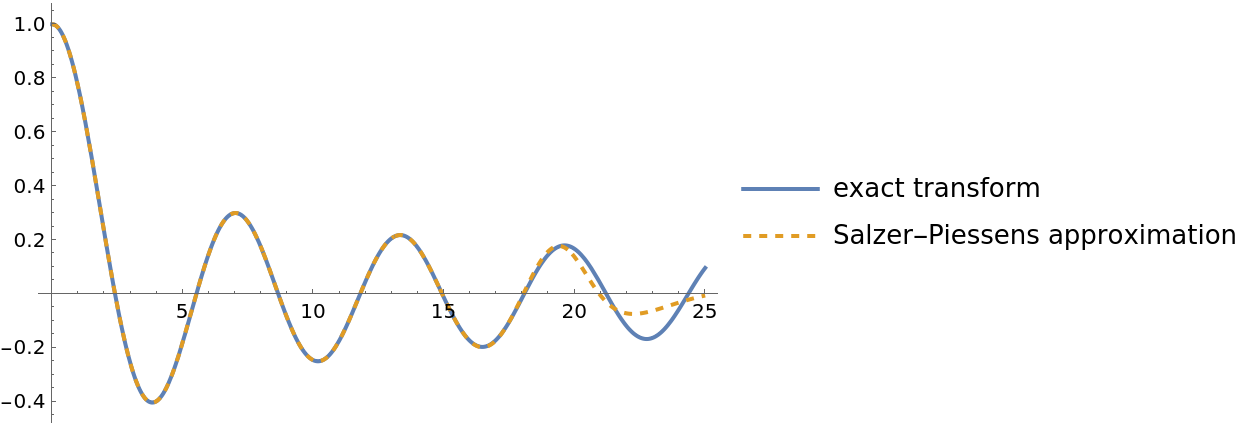Wolfram Function Repository
Instant-use add-on functions for the Wolfram Language
Function Repository Resource:
Get a list of abscissas and weights for the numerical inverse Laplace transform
ResourceFunction["SalzerPiessensInversionWeights"][n] gives a list of the 2 n+1 triples {xi,wi,εi} of the (2 n+1)-point Salzer-Piessens formula for numerical Laplace transform inversion, where wi and εi are the corresponding weight and error weight of the abscissa xi. | |
ResourceFunction["SalzerPiessensInversionWeights"][n,prec] uses the working precision prec. |
The abscissas, weights and error weights for a 7-point Salzer-Piessens rule:
| In[1]:= |
| Out[1]= |  |
Use the specified precision:
| In[2]:= |
| Out[2]= |  |
A function to be transformed:
| In[3]:= |
Generate a 21-point Salzer-Piessens rule at high precision:
| In[4]:= |
Numerically evaluate its inverse Laplace transform at a given point:
| In[5]:= |
| Out[5]= |
Compute the error estimate:
| In[6]:= |
| Out[6]= |
Compare with the exact answer:
| In[7]:= |
| Out[7]= |
| In[8]:= |
| Out[8]= |
Plot the exact and approximate transform together:
| In[9]:= |
| Out[9]= |  |
Plot the error estimate:
| In[10]:= |
| Out[10]= |  |
A (2 n+1)-point Salzer-Piessens rule gives the exact inverse Laplace transform for functions of the form ![]() :
:
| In[11]:= |
| In[12]:= |
| Out[12]= |
| In[13]:= |
| Out[13]= |
A function to be transformed:
| In[14]:= |
Machine precision usually does not give sufficient accuracy due to the ill-conditioned nature of numerical Laplace transform inversion:
| In[15]:= |
| In[16]:= |
| Out[16]= |
Arbitrary precision is often necessary to get accurate results:
| In[17]:= |
| In[18]:= |
| Out[18]= |
This work is licensed under a Creative Commons Attribution 4.0 International License